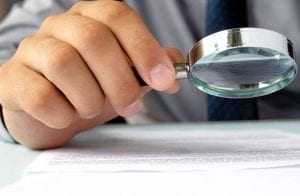What is “Discovery” and how do I prepare for it? (Part I)
Discovery is the process whereby all of the parties exchange relevant information and evidence relating to a civil lawsuit in preparation for trial.
This process can be a lot of work for both you and your lawyer, but it is an essential step in preparing for trial and can often lead to settlement of the claim.
Step One: The Discovery Plan
The first step of Discovery is creating a discovery plan that all the parties can agree on. The Discovery Plan addresses the practical details of when and how the parties will identify, retrieve, and provide relevant documents, as well as the practical details relating to examination for discovery (discussed in Part II of this blog post). According to Rule 29.1 of the Rules of Civil Procedure, the Discovery Plan must be in writing and should include:
- The intended scope of documentary discovery;
- Dates for the service of each party’s affidavit of documents;
- Information respecting the timing, costs and manner of the production of documents by the parties and by other persons;
- The names of persons intended to be produced for oral examination for discovery and information respecting the timing and length of the examinations; and
- Any other information intended to result in the expeditious and cost-effective completion of the discovery process in a manner that is proportionate to the importance and complexity of the action.
Your lawyer will help prepare the Discovery Plan, but your input will be needed. While the Discovery Plan is being finalized it is important that you respond promptly to any questions or requests your lawyer may have.
Step Two: The Affidavit of Documents
Each party is required to serve an Affidavit of Documents on each of the other parties in accordance with the Discovery Plan. The Affidavit of Documents contains a list of all the documents that are (i) relevant to the litigation and (ii) in your possession, control, or power (or were previously). In order to complete the Affidavit of Documents, you are required to conduct a diligent search of your records and make any necessary inquiries to ensure that all the relevant documents are listed and produced. This can be a tedious process, but it must be done properly. If any party fails to disclose or produce a relevant document that is favourable to their case, they may not later use the document at trial. If any party fails to disclose or produce a relevant document that is not favourable to their case, the Court may strike that party’s pleadings (eliminating the party’s claim or defence).
Once you have identified and retrieved all the relevant documents, they should be provided to your lawyer. Your lawyer can then prepare the Affidavit of Documents for your signature, and determine whether to claim privilege over any of the documents that you have provided. If your lawyer decides to claim privilege over a certain document it will still be listed in the Affidavit of Documents, but it will not be produced to the other party.
This article is not intended as or to be relied upon for legal advice. Consult with a lawyer for your unique situation.




